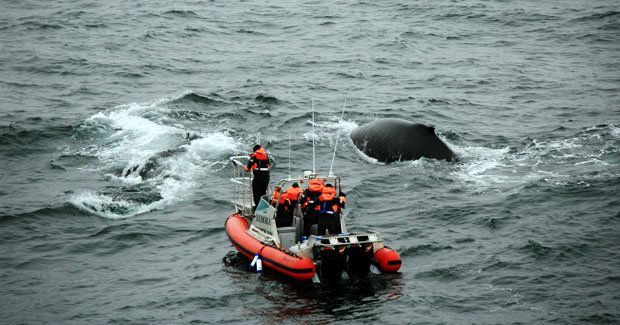Whale research mission returns from Antarctica

THE JOINT AUSTRALIAN-NEW Zealand Antarctic whale expedition, which set out at the start of February, made a triumphant return to Wellington on Monday 15 March.
After six weeks on board the New Zealand Research Vessel Tangaroa, studying humpback, blue and Antarctic minke whales in their Southern Ocean habitat, the team – including scientists from Australia, New Zealand, and France – are satisfied that their mission was well worthwhile.
“The voyage was extremely successful in demonstrating that we can work with whales in open water, on the high seas, using non-lethal research techniques,” expedition leader Dr Nick Gales says.
The researchers used small boats, launched from the Tangaroa, to get close to the whales, allowing scientists to take biopsy skin samples, place satellite tags, and perform acoustic and hydrographic surveys to learn more about these whale species and how they interact with their environment in the polar ocean.
WHILE STUDIES LIKE THIS have been performed closer to land, in the warmer low latitudes where whales come during the Southern Hemisphere winter to give birth to their calves, this is the first time many of these research techniques have been used in Antarctic waters.
“This was one of the first multi-disciplinary voyages to the Southern Ocean to focus specifically on whale populations,” says Nick. “It was fantastic to have the chance to do that, and just a privilege to see these amazing creatures up close, living in this very difficult environment.”
Nick and his team expect their data will make a vital contribution to scientific understanding of Southern Ocean whales, especially in terms of species conservation as climate change affects the extent of sea ice and krill populations.
View gallery of photos from the mission.

